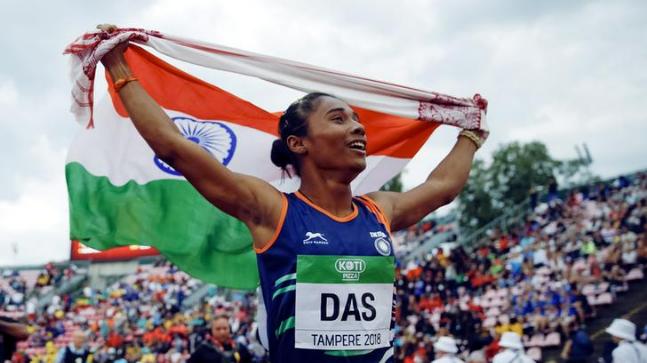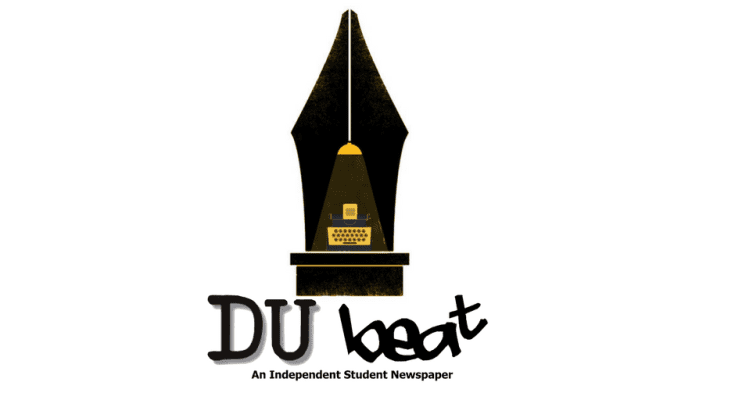“Brilliant ideas don’t make a start-up; its business sense does.”
Design Innovation Centre (DIC) situated in the North Campus of the University of Delhi (DU) is a Ministry of Human Resource Development (MHRD) initiative to promote creative problem-solving, and provide an incubation space for the start-ups of DU. DU Beat interviewed the co-ordinator and one of the most successful start-ups of DIC, called Precisely– the opportunity hub.
In the Interview:
Professor Bibhunanda Biswal, Co-ordinator, DUDIC
Saurabh Patel, CEO, Precisely
Desh Deepak Dwivedi, Head of Business Development, Precisley
Hitesh Gautam, Chief Product Developer, Precisely
Here are some excerpts from the conversation for all the aspiring entrepreneurs of the University:
Sriya: From being undergraduate students, to establishing a start-up, how did the whole journey start?
Hitesh: I started my entrepreneurial journey in my first year of college in DU with my colleagues sitting in this room of DIC, thinking of some idea to give the right kind of opportunities to the right kind of students. We pursued this idea and worked really hard to establish a start-up to help students, and develop a product out of it. There is where the journey started.
Sriya: What motivated you to go for this start-up venture? Also, please tell us about the venture.
Saurabh: I don’t think any of us ever wanted to be an entrepreneur. The very reason we started Precisely was to solve a problem that we faced ourselves, as students. I remember one of my friends went abroad for a paper presentation. I had a similar project that I had done during my summer vacations. But simply because I did not have access to information about that opportunity, I could not apply for it. And this was the motivation to build Precisely.
Desh: Adding up something to what Hitesh said about how we started, and why we started this venture, (one of the reasons) is that we were the introvert students of our class and did not hang-out much. We used to have our own space, and always wanted to do something different. My college, Cluster Innovation Centre, in its core, had this mentality of entrepreneurship and not just getting degrees from the institution. We wanted to be different and actually, the introvert thing came into play and we formed a very small group of our own. For us, it was really new to venture into this business. Moreover, we were students of B.A. (Honours) Humanities and Social Sciences, having no background in anything other than the Microsoft package. We identified our strengths, and pooled different skills we had in our group in the sphere of logistics and e-commerce.
Sriya: Why is the start-up called Precisely?
Saurabh: When we started out searching for international opportunities for any internships or conferences, there were so many of them. In any discipline, there are millions of opportunities out there. Even if one had access to all of it, it was difficult to filter out which ones to apply for. We wanted to help students find those opportunities, which are “precisely” tailored to their interests and skill, and to “precisely” provide them those opportunities.
Sriya: How is the start-up culture and entrepreneurship ecosystem in DU?
Hitesh: In DU, the start-up culture is booming. When we look around, there are many online market places that DU students are launching. For example, people are creating business models and start-ups on e- rickshaws, PGs etc.
Saurabh: The access to incubators, business plan competitions and accelerators only started in the last five years, but before it, there were projects happening in colleges. Cells like Enactus have their entrepreneurial projects, but they are not called start-ups, however they have the potential to grow into start-ups. So, the ecosystem has always been there.
Sriya: How does the Design Innovation Centre support the start-up ecosystem of the University?
Professor Biswal: In the University, what we are doing is that anyone who has an innovative idea and wants to make a product, and if we see potential in it, we give them three months’ infrastructural support to sit here, and work on the product. If we see progress happening, then we give them another three months. Apart from that, we provide internships in product designing for under-graduates and post-graduates. We also provide mentoring through training workshops and experts.
Sriya: Precisely has 45,000 downloads on Play Store and is a resident start up at UNIncept NUMA Accelerator. Could you explain the role of accelerators for the establishment of start-ups and their success?
Saurabh: Accelerators largely help start-ups secure funding or achieve a product market fit. I may have 10,000 people using my app right now but they may not be drawing money out of it. Accelerators provide mentorship and funding in many cases, the central idea being building a business around it.
Sriya: Being college students, there is much stress due to the college work pressure, and managing the work of the start-up can be quite daunting. How do you maintain a balance between both?
Saurabh: You have to have priorities and have to have one thing in mind that you have to make some progress every day. If you are determined to build a start-up, you will find time out for it. Like Hitesh did by working below the benches inside his classes (laughs).
Desh: (amusingly) For us, the advantage was that the place we were working was situated inside the campus. Therefore, it was comparably easy to manage it.
Sriya: What were some of the challenges that you faced during your entrepreneurial journey?
Saurabh: There is not a lot of support initially. There are not many people who can guide you in the right direction. As you scale up your start-up, the journey does not get easier and throws newer things and challenges. If, yesterday, funding was a problem then, today, product market fit is a problem. It is very unstable, but I think that’s where the fun and beauty of this business is because it teaches you about a lot of things.
Sriya: Can you quickly brief the procedure for getting an incubation space at Design Innovation Centre for our readers?
Professor Biswal: If you have an idea which you think can convert into a product, then you can come to us even in the idea-stage. Just walk-in at the centre and you will have to fill a brief form and, after going through your idea, if it makes business sense then we will call you for a discussion and provide you co-working space and other support to convert the idea into a product.
Sriya: What would you like to tell the budding entrepreneurs of DU, who wish to embark on their entrepreneurial journey?
Professor Biswal: The fundamental thing for success of a start-up is that you are able to take a product to the end user. Brilliant ideas don’t make a start-up; its business sense does. You must have the ability to take the product to the market.
Saurabh: Perseverance is very necessary to continue your (entrepreneurial) journey because it is very tough. When we started, there was this popular web series called Pitchers which had a great influence on me. There is a quote in it where the character goes on stage and says, “Jab kamre me andhera hoga na, light jalaane ke liye switch pe haath maaroge aur tab tak maaroge jab tak light nahi jalegi (When the room is dark, you will find the switch to turn the lights on. And you will keep finding it till the lights turn on). You have to believe that light jalegi (the light will work).”
Interviewed by Sriya Rane for DU Beat
[email protected]
Feature Image Credits: Hitesh Kalra for DU Beat








